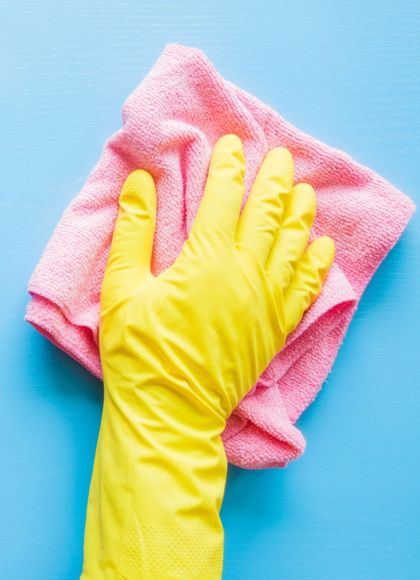In an era where health and good hygiene practice is paramount, Personal Protective Equipment (PPE) has risen to the fore as a critical component in maintaining public health. One piece of PPE that has steadily garnered attention is the surgical mask—a once exclusively healthcare-associated item now seen adorning faces in every corner of the world. Yet, many find themselves asking: "What does a surgical mask protect you from?" In this review, we dive deep into the defensive capabilities of surgical masks, elucidating their roles in flu prevention, allergy management, haze and dust shielding, pollution mitigation, and virus filtration.
Do Surgical Masks Prevent the Flu?
The influenza virus, or flu, is a contagious respiratory ailment. It predominantly spreads through droplets discharged into the air when infected individuals cough, sneeze, or talk. By offering a physical barrier to these droplets, surgical masks limit the inhalation risk.
Scientific studies suggest that wearing a surgical mask can indeed play a crucial role in flu prevention. These masks not only decrease the wearer's susceptibility to the flu but also curb the potential of flu-infected persons from spreading the virus.
However, it's crucial to underscore that surgical masks alone do not offer foolproof protection. They should be incorporated as part of a wider preventive strategy that includes regular hand hygiene and timely flu vaccinations for a holistic approach to flu prevention.
Do Surgical Masks Help with Allergies?
Environmental allergens like pollen, dust, mould spores, and animal dander often trigger allergic reactions. Surgical masks, by acting as a physical barrier, can limit exposure to these allergens, providing symptomatic relief for allergy sufferers.
The protective efficacy of a surgical mask against allergies hinges largely on its fit. It's crucial to ensure that the mask snugly encloses the nose and mouth, leaving minimal gaps to prevent allergen ingress. Also, regular mask replacements are necessary, given that allergens can accumulate on the surface over time, potentially triggering allergic reactions upon prolonged contact.
Does a Surgical Mask Protect Against Haze?
Haze primarily comprises fine particles measuring 2.5 micrometres or smaller, known as PM2.5. These tiny particles can penetrate deep into our lungs, leading to a multitude of health issues. While surgical masks can filter out larger particles, their efficacy in filtering PM2.5 is quite limited.
Donning a surgical mask can, however, confer some degree of haze protection. The mask may trap some of the haze particles, particularly if they clump together. For a more robust defense against haze, however, consider P2 respirators, which are explicitly designed to filter out smaller particles effectively.
Can a Surgical Mask Protect from Dust?
For those finding themselves in a dust-rich environment, a surgical mask can offer some level of protection. The multi-layered structure of a surgical mask can filter out large dust particles, stopping them from entering the wearer's respiratory tract.
But caution is warranted—smaller dust particles may still permeate the mask. In line with the recommendations for haze protection, consider using an P2 respirator for more comprehensive protection against fine dust particles.
Do Surgical Masks Protect Against Pollution?
Air pollution represents a complex amalgamation of solid particles and gases. Car emissions, industrial chemicals, dust, pollen, and mould spores may all contribute to the particulate matter in the air.
While surgical masks can afford some defense against larger pollution particles, they may not efficiently filter out smaller pollutant particles or harmful gases. For more effective protection against pollution, particularly in heavily polluted regions, consider using masks with higher filtration capabilities, like the P2 or N95 masks.
Do Surgical Masks Filter Viruses?
Surgical masks were primarily designed to protect other individuals from the wearer's respiratory droplets. However, they can also offer the wearer some level of protection against larger droplets that may carry viruses.
Though surgical masks are not as adept as P2 respirators at filtering out airborne particles, they can nonetheless play a part in reducing the risk of viral transmissions. By capturing droplets expelled during talking, coughing, or sneezing, surgical masks can limit the spread of viral infections.
Conclusion
Surgical masks can provide valuable protection against the flu, allergies, dust, pollution, and, to a certain extent, viruses. Yet, for situations involving higher risk or exposure to smaller particles, specialized respirators like P2 masks are advised.
The most potent protection results from combining mask usage with meticulous hygiene practices and adherence to other recommended public health measures. Furthermore, remember that for surgical masks to function optimally, they must fit well and be replaced regularly.
With these tips in mind, it is crucial to remain informed about the protective capabilities and limitations of surgical masks. Understanding their proper usage and the circumstances in which they provide the most protection can help us make more informed choices, contributing to better health outcomes for all.
The Department of Health has a comprehensive summary to help you quickly choose the right face mask for environmental hazards here.
Confused about the different types of masks (KN95, N95, P2…)? Check out our blog going over their differences here.
Sources
- Better Health Channel. (n.d.). Flu (influenza). Retrieved June 21, 2023, from https://www.betterhealth.vic.gov.au/health/conditionsandtreatments/flu-influenza
- The University of New South Wales Newsroom. (2022, October 31). Yes, masks reduce risk of spreading COVID, despite review saying they don't. Retrieved June 21, 2023, from https://newsroom.unsw.edu.au/news/health/yes-masks-reduce-risk-spreading-covid-despite-review-saying-they-don%E2%80%99t
- Australian Government Department of Health. (n.d.). Influenza (flu) vaccines. Retrieved June 21, 2023, from https://www.health.gov.au/topics/immunisation/vaccines/influenza-flu-vaccine?language=und
- New South Wales Government. (n.d.). Guidance on wearing face masks. Retrieved June 21, 2023, from https://www.nsw.gov.au/covid-19/stay-safe/guidance-on-wearing-face-masks
- Environment Protection Authority Victoria. (n.d.). PM2.5 particles in the air. Retrieved June 21, 2023, from https://www.epa.vic.gov.au/for-community/environmental-information/air-quality/pm25-particles-in-the-air
- Queensland Government. (n.d.). Common air pollutants. Retrieved June 21, 2023, from https://www.qld.gov.au/environment/management/monitoring/air/air-pollution/pollutants
- Department of Health and Human Services Victoria. (n.d.). Face masks for environmental hazards. Retrieved June 21, 2023, from https://www.health.vic.gov.au/sites/default/files/migrated/files/collections/policies-and-guidelines/f/face-masks-for-environmental-hazards-pdf.pdf
- Victoria State Government Health and Human Services. (n.d.). Face masks. Retrieved June 21, 2023, from https://www.coronavirus.vic.gov.au/face-masks













